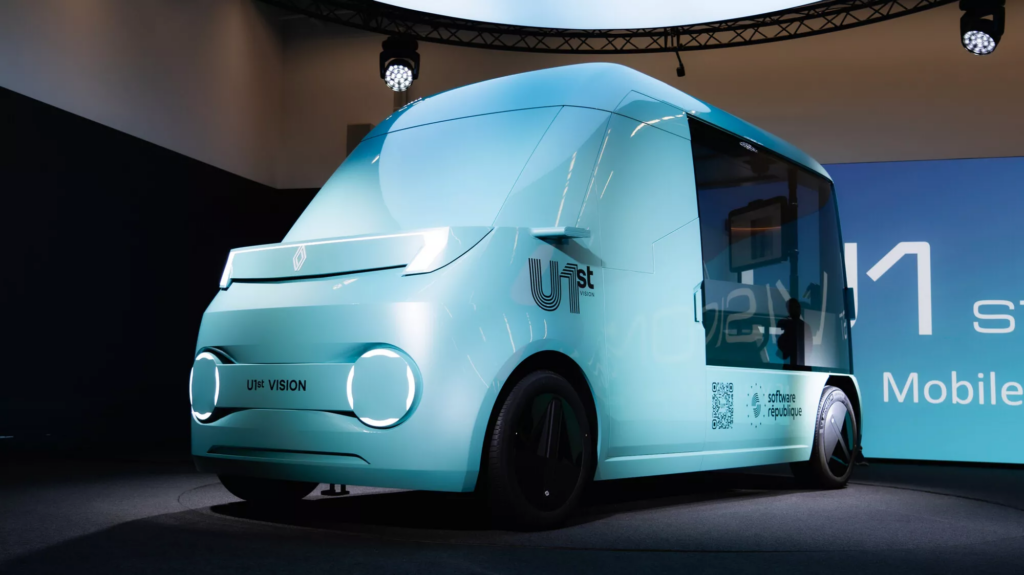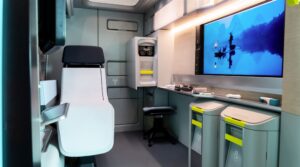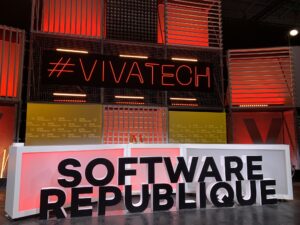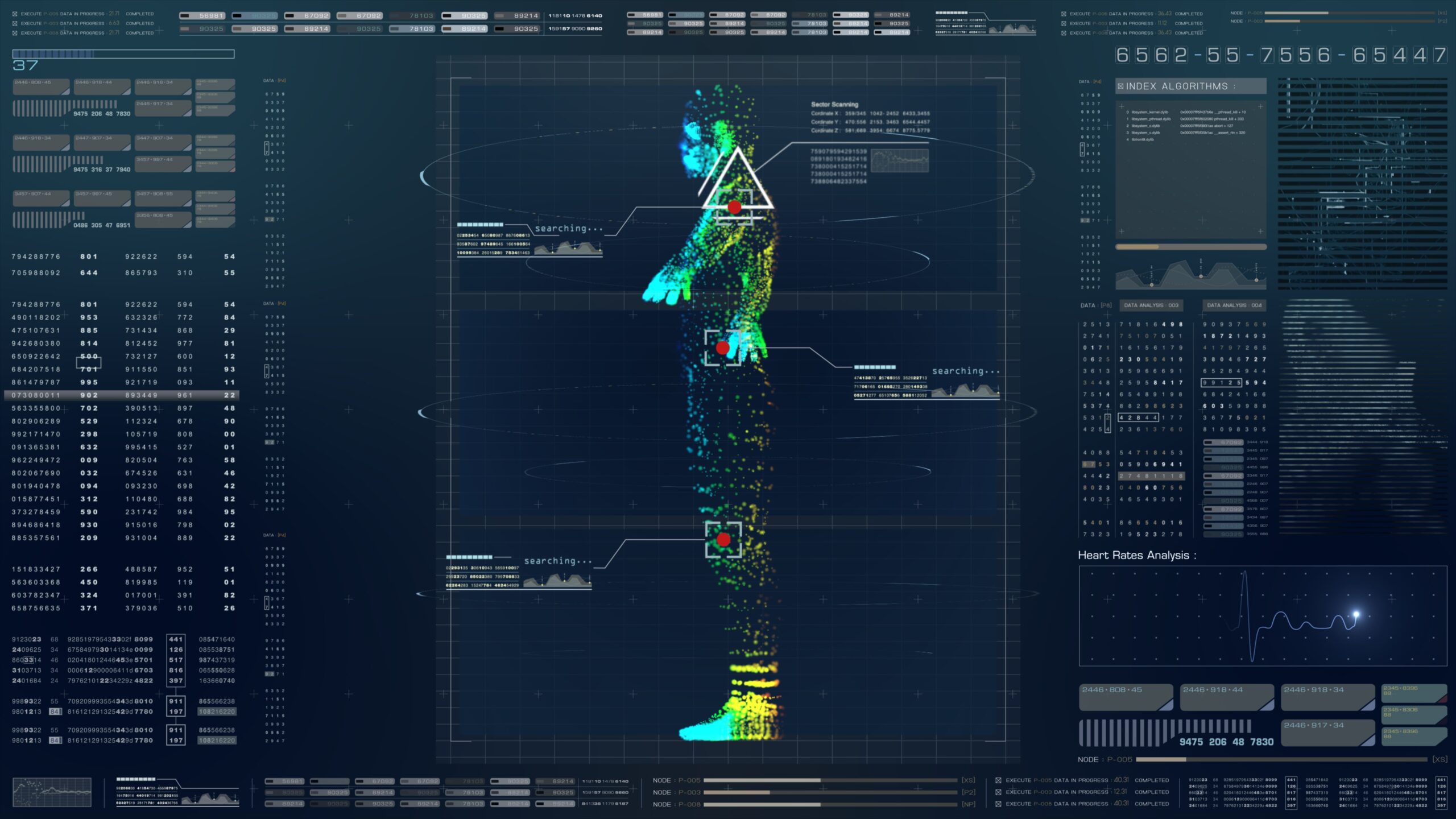U1st Vision by République Software: digital health at the service of citizens and regions


In a global context where access to healthcare remains unequal and often insufficient, U1st Vision offers a radically new solution to address medical deserts. The concept is based on the idea that, in order to improve public health, medical services must first be brought closer to the people. Based on this observation, U1st Vision has developed an innovative mobile infrastructure capable of offering local medical services, even in the most isolated or under-equipped areas, whether in France, Africa or elsewhere.
The core of the project is based on a light commercial vehicle, the FlexEVan, equipped with an autonomous multi-service or “pop-up” module. This mobile laboratory contains all the equipment necessary to carry out nearly 85% of the most common medical examinations directly on site, thus sparing patients time-consuming and energy-sapping trips to distant hospitals.
These mobile units are designed to integrate into the areas they serve, thanks to a precise mapping of the areas most in need of care. These “pop-ups” are an innovation, not only because they enable a fast and reliable diagnosis, but also because they guarantee continuity of care based on secure management of medical data. Through the use of a digital medical identity, each patient is assured of personalized follow-up, wherever they are.

Artificial intelligence plays a central role in the effectiveness of the U1st Vision project. The data collected from medical examinations, with 21 parameters continuously monitored, are analyzed in real time by advanced algorithms. This speeds up diagnoses and prevents the worsening of certain medical conditions before they become critical. By integrating these analyses into the care pathway, U1st Vision not only improves the quality of care, but also makes it possible to anticipate future public health needs.
This proactive approach is reinforced by the continuous connection of the modules to a centralized data management platform. Each mobile unit is equipped with devices that enable communication with health authorities and healthcare professionals. This allows the latter to monitor the changing health status of local populations, better plan medical interventions and adjust resources according to actual needs.
The project also promotes advanced prevention tools, making medical check-ups more accessible and regular. By being directly present in the field, these measures encourage citizens to consult more frequently, to participate in early screening programs and to take charge of their health in a proactive manner.
U1st Vision is the perfect example of what collaborative innovation can bring to the healthcare sector. Software République brought together more than 20 companies from various sectors to work together on the design and implementation of this solution. The partners involved include industry giants as well as start-ups and public sector players. This combination of diverse skills has enabled the development of a successful solution in just six months, a record time for a project of this scale.
The methodology adopted is based on horizontal and agile collaboration, which promotes the rapid integration of innovations, while meeting the requirements of the territories served. One of the key factors in the project’s success is the inclusion of companies of all sizes, particularly start-ups, which bring a flexibility and speed of execution unmatched in large industrial groups. This diversity of players also allows for great openness, as the solutions developed are designed to be replicated in other contexts, beyond the initial target territories.
Renault, for example, played a decisive role in the design of the electric vehicles that serve as mobile laboratories. These vehicles, which are set to become mobility tools for other sectors, perfectly illustrate how innovations developed for a specific project can be applied to multiple industries, thus creating unprecedented synergies.
One of the major ambitions of U1st Vision is to make digital health accessible to all, regardless of geographical location or the level of development of the local infrastructure. The objective is not only to provide medical solutions where they are lacking, but also to strengthen prevention, facilitate early diagnosis and improve the quality of life of the most vulnerable populations.
The project is not limited to curative care. Prevention is a strong focus of U1st Vision, thanks to connected devices that allow continuous monitoring of citizens’ health status. This data, collected securely, is integrated into information systems that allow citizens to connect to their personal health space, where they can monitor their own parameters and receive appropriate advice.
In addition, these tools enable local authorities to better anticipate medical staffing and resource needs by visualizing changes in health conditions in the regions. This model helps to relieve the burden on traditional healthcare systems and offer more efficient medical services, while reducing the pressure on hospital infrastructures.

Software Republic at the VivaTech 2023 trade fair, in collaboration with Atos, Dassault Systèmes, Orange Business, Renault Group, STMicroelectronics and Thales.
U1st Vision also brings a strong territorial dimension to digital health. The solutions offered are not limited to an individual approach, but are part of a broader vision of public service management. Mobile health modules can be used to support local initiatives, such as urban planning, heat island management or improving air quality in urban areas.
This ability to integrate territorial issues into the management of health services is made possible through the use of digital twin technologies, which make it possible to simulate and optimize services according to local characteristics. By using these tools, decision-makers can make informed decisions, supporting both the well-being of citizens and the efficiency of public services.
Created in March 2024, the ITN of Mines Paris – PSL is positioning itself as a central player in the digital transition, mobilizing the expertise of its 18 research centers. With strategic focuses such as digital health, digital engineering and cultural industries, the ITN brings together knowledge to meet the economic, social and technological challenges of our time. Driven by a responsible and collaborative approach, it aims to accelerate innovation and guide public and private actors in this transformation.
The Digital Health seminar brought together researchers, industrialists and decision-makers to discuss the major challenges of the digitization of healthcare. In a world where technological advances are redefining medical practices, digital health is emerging as a lever for responding to the current and future challenges of the healthcare system. The ITN explores these transformations through various themes: the reinvention of hospital infrastructures, the development of digital twins for precision medicine and the integration of artificial intelligence at all levels of healthcare. These issues are not limited to technological innovation; they also question the social, economic and ethical dimensions of connected and intelligent medicine, paving the way for more personalized, accessible and predictive care.

The concept of digital twins, initially developed for the aeronautics industry, is set to profoundly transform the healthcare sector. The seminar Sant...